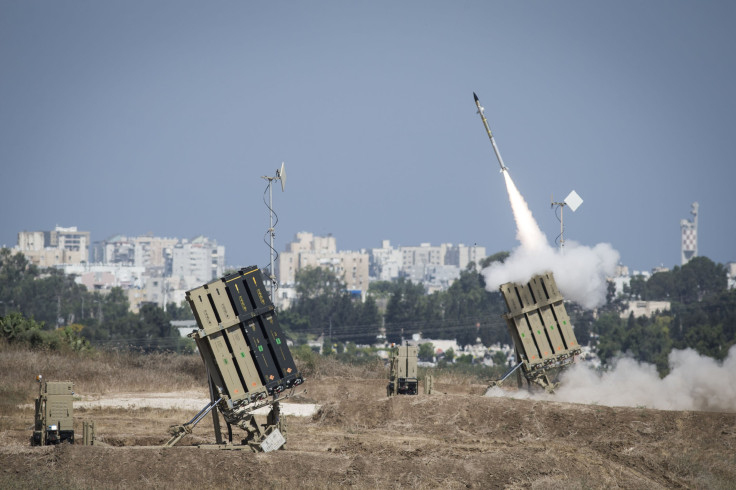Israel Rejects Ukraine's Request For Air Defense System To Face Russia's Iran-made Drones, Missiles
KEY POINTS
- Israel offers humanitarian aid but has refrained from providing advanced weaponry, defensive weapon systems
- Jerusalem has strategic security interests in Syria, where Russia holds influence
- Zelensky had earlier expressed shock at Israel's "failure to supply arms" to Ukraine
Despite a desperate request from Ukraine for the supply of advanced air defense systems to counter Russia's use of Iranian, kamikaze drones, Israel has turned down Kyiv citing "limitations" and "a variety of operational considerations," and instead offered to help Ukrainians develop air attack alerts for civilians.
"Our policy vis-à-vis Ukraine will not change," Israeli Defense Minister Benny Gantz said Wednesday. "We will continue to support and stand with the West. We will not provide weapons systems. We have asked the Ukrainians to share information regarding their needs and have offered to assist in developing a life-saving, early-warning system."
The Israeli Defense Minister's statement comes after Ukrainian Foreign Minister Dmytro Kuleba on Tuesday said Ukraine would ask Israel for air-defense systems.
This is not the first time that Ukraine has requested Israel for its weapon systems. President Volodymyr Zelensky expressed "shock" in late September at Israel's "failure to supply arms" to Ukraine.
"I don't know what happened to Israel. I'm honestly, frankly -- I am in shock because I don't understand why they couldn't give us air defenses," Zelensky reportedly told the French media.
Earlier in March, a month into the invasion, President Zelensky had compared the Russian aggression to the Holocaust and urged Israel to abandon its effort to maintain neutrality.
According to a report in Axios, in its latest official request made to Israel on Tuesday, Kyiv has asked for the supply of air defense systems that will allow Ukraine to counter any Iranian ballistic missiles and Iranian attack drones used by Russia on its cities.
The letter, addressed to Israel's Foreign Ministry by the Embassy of Ukraine, said Russia was using drones of Iranian origin such as the Shahed-136 and Mohajer-6 to attack large Ukrainian cities and civilians. It also referred to the reports that Iran is preparing a shipment of Fateh-110 and Zolfaghar ballistic missiles for Russia.
Given the tensions between Iran and Israel, the letter suggests that Russian use of Iranian-made weapons will help Tehran gain a "positive experience" enabling them to further improve the "offensive weapons" systems, which in turn will increase the "security threats" and risks for Israel and the Middle East region.
The letter says that Ukraine is "highly interested" to procure Israel's air defense systems, particularly mentioning Iron Beam, Barak-8, Patriot, Iron Dome, David's Sling and Arrow Interceptor, along with training for operators.
Israel, which has publicly condemned Russia's invasion, continues to side with Western support for Ukraine. Apart from sharing intelligence, Jerusalem has also been providing Kyiv with humanitarian aid including helmets and bulletproof vests for medical teams.
However, considering its strategic security interests in Syria, where Russia holds influence, Israel has refrained from providing advanced weaponry and defensive weapon systems despite Ukraine's requests.
"We have our own interests, and we have to share our airspace in the North with Russia," Gantz later said while speaking at the Institute for National Security Studies on Wednesday.
"On the one hand, we are with the Ukrainians, and we are providing as much support that is not offensive as is possible. We asked them to provide us with data to assist them in building a real-time alert system. They still haven't done that," he said.
Israel's offer to build an air attack alert signals a softening of a policy of non-military intervention in the Russia-Ukraine war. While Jerusalem is following Iran's involvement in the war, it also intends to maintain its strategic ties with Moscow.

© Copyright IBTimes 2024. All rights reserved.





















